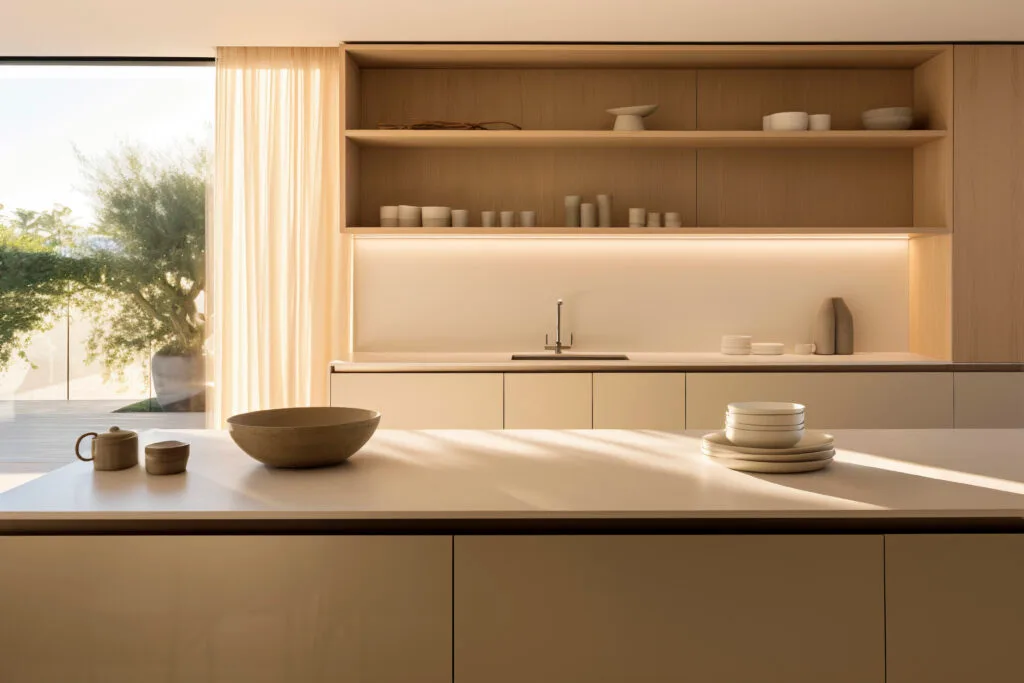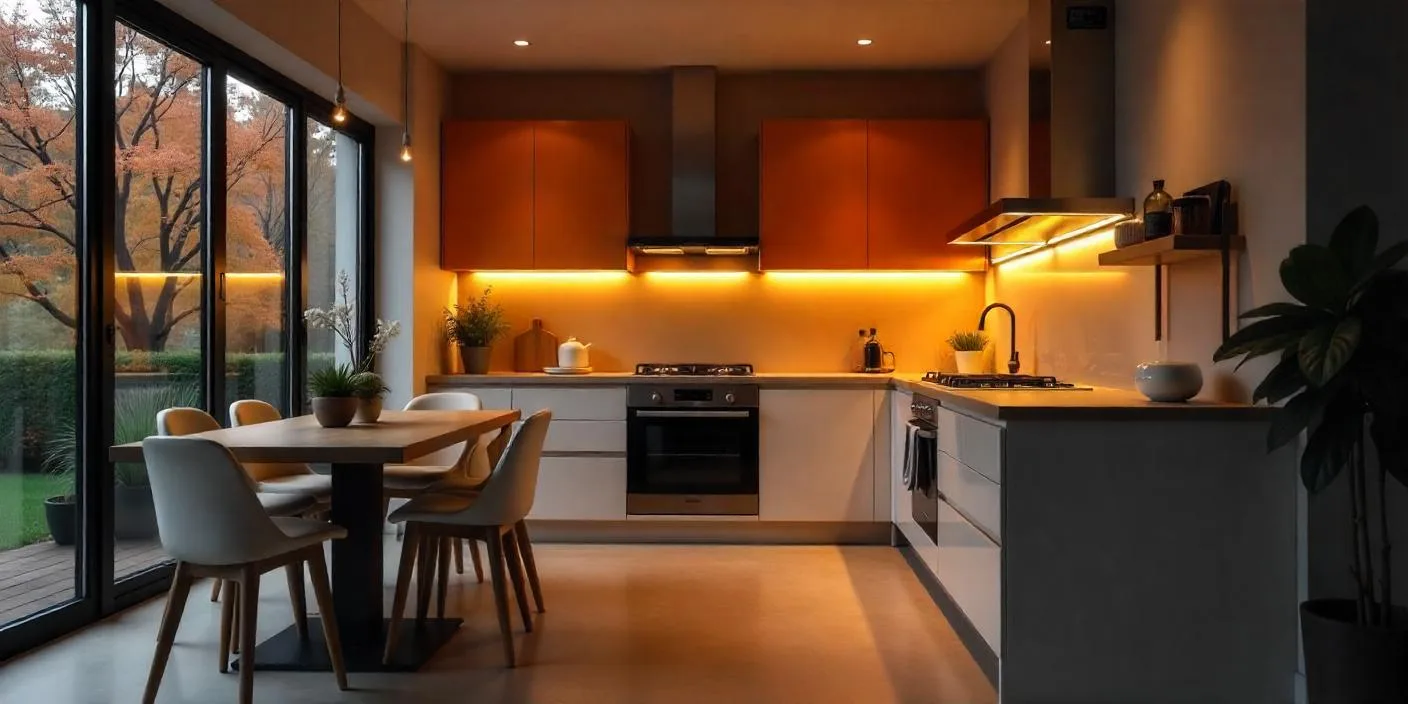Solid plywood cabinets should be explored and considered by home owners to be used in their kitchens. Here are 4 amazing benefits to use this cabinets in your home.
Solid Plywood Cabinets #1: Strong And Durable Material
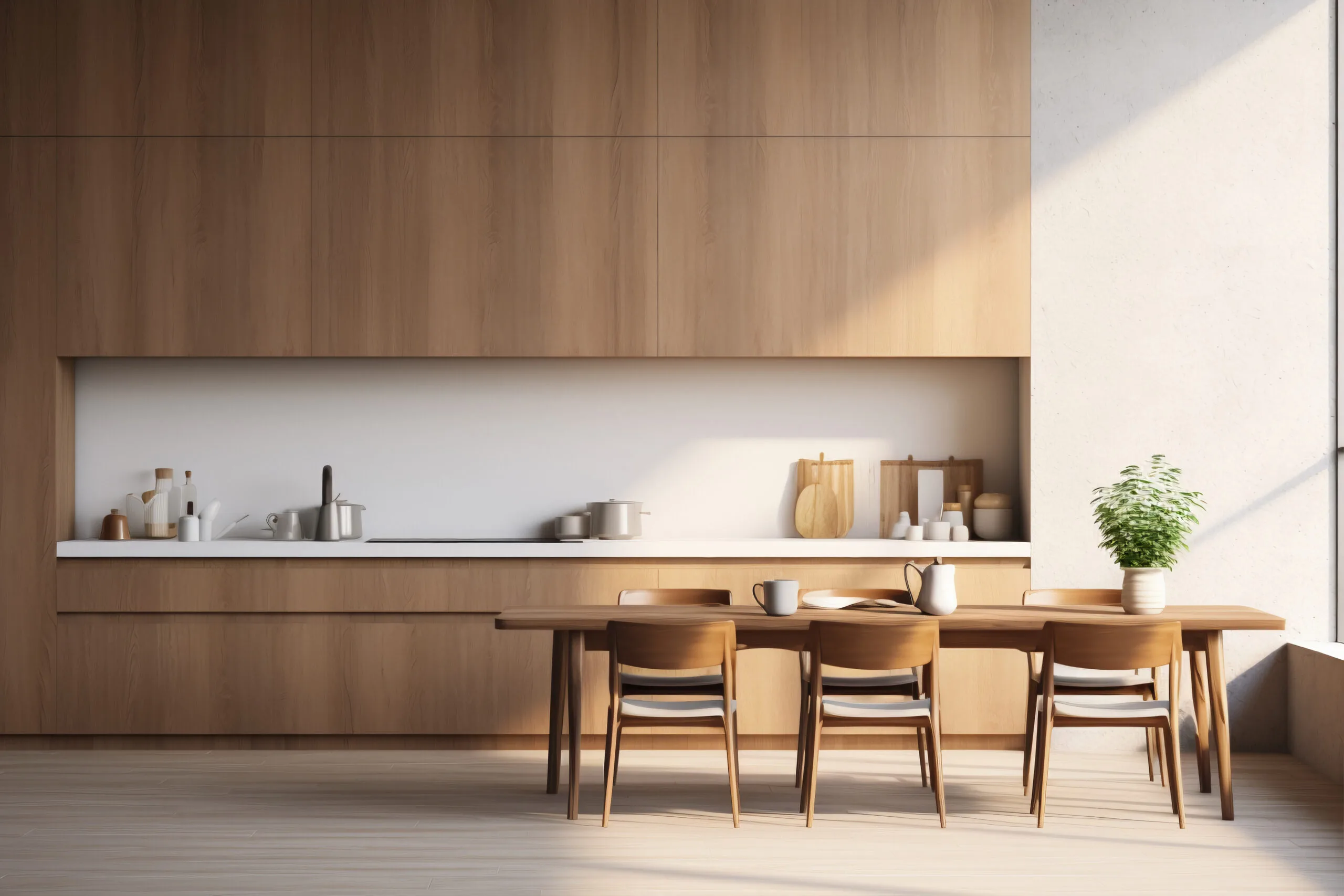
Solid plywood cabinets allow home owners with long-term kitchen designs to favour them due to their strength and durability. This material is well known terms of resistance towards cracking, warping and shrinking. This not only makes plywood cabinets stronger than other similar products but also allows them to maintain their integrity when the humidity levels fluctuate — as they do in kitchens.
The major advantages include resistance to heavy weighted countertops and kitchen equipment by not bending or cracking. This material is strong enough to keep cabinets firm and functional even when carrying a heavy load for a long period without any sign of weakening. Moreover, the layered design in plywood helps in weight distribution to minimise the stress concentration that may lead to damage.
@ampquartz This is only an example for you to measure full height cabinet. You can always go to our website and hit the “Price Guide” button to go details on measuring your desired cabinet. and yep its Muji style! 💻 𝐕𝐢𝐬𝐢𝐭 𝐨𝐮𝐫 𝐰𝐞𝐛𝐬𝐢𝐭𝐞! https://www.ampquartz.com/ 𝐂𝐨𝐧𝐭𝐚𝐜𝐭 𝐮𝐬! 📞 +6017 732 0149 (Jasmine) +6010 707 7815 (Lekha) https://go.wa.link/ampquartz 📍𝐕𝐢𝐬𝐢𝐭 𝐨𝐮𝐫 𝐬𝐡𝐨𝐰𝐫𝐨𝐨𝐦! Address: https://waze.com/ul/hw23bfh9s4 82, Jalan Gaya 1, Taman Gaya, Ulu Tiram, 81800 Johor Bahru #fypシ #kitchencabinets #kitchenmeasurement #ampquartz
♬ original sound – Ampquartz Kitchen Cabinets – Ampquartz Kitchen Cabinets
Plywood is also resistant to water — something very important in the kitchen where water and moisture are common. Unlike solid wood which may swell and warp after being exposed to moisture, plywood's structure allows it to handle such conditions much better. The resistance of plywood to water-related damages ensures that plywood cabinets maintain their appearance and functionality for many years — becoming a long-term choice for a home owner.
Besides, the inherent strength in plywood makes it more resistant to such impact damages such as dents or chips compared to other softer materials. This makes it very suitable for busy households where the cabinets may be subjected to heavy use. Therefore, while making a choice on durability and strength of solid plywood cabinets, it is important to say that they guarantee reliability and longevity — hence able to cope with demands of a modern kitchen.
Solid Plywood Cabinets #2: Highly Customisable
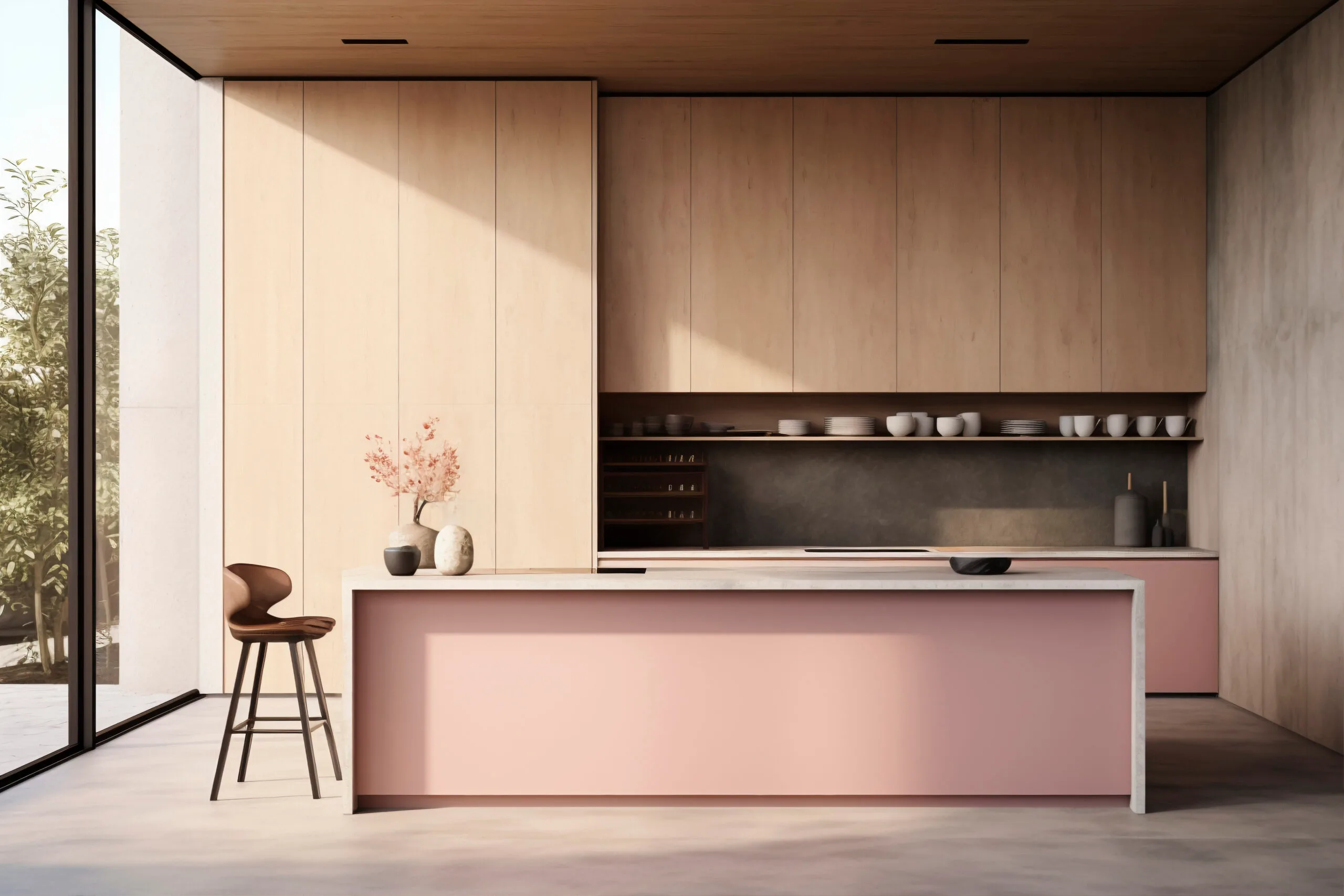
One of the great advantages that solid plywood cabinets have over their competitors n kitchens is unparalleled customisability. The strength yet flexibility depicted by this material makes it an exemplary choice for creating custom designs to accommodate both personal taste and kitchen layout.
Unlike materials such as particleboard which may splinter or even crack, plywood is durable enough to be easily cut, shaped and moulded around specific spaces. This would mean that home owners can have more freedom to design cabinets that fit their unique vision, whether it be in intricate detailing, specific dimensions or custom features such as pull-out shelves, lazy Susans or built-in organisers.
The versatility of plywood also extends to finishes. The smooth surface can easily be sanded, painted or stained and allows home owners to present their homes in a modern and sleek look or a rustic and traditional look. Plywood cabinets can be finished in such a way that they either match or complement other elements of design within the kitchen to create a visually cohesive environment. Furthermore, the fact that plywood can support the addition of supplementary features such decorative handles, soft-close mechanisms or adjustable shelves without compromising the cabinet's structural integrity is an advantage.
As far as kitchens of irregular layouts or those with very limited space are concerned, custom-made plywood cabinets can be designed in a way to utilise the space well. That helps when it comes to saving space and makes a big difference in small kitchens where any additional space is hard to find. This provides the flexibility while blending functionality and personal taste to satisfy the demands of a perfect kitchen. All in all, the ability to tailor the plywood cabinet adds significant value to any home — be it a renovation or a building from scratch.
Solid Plywood Cabinets #3: Sustainability
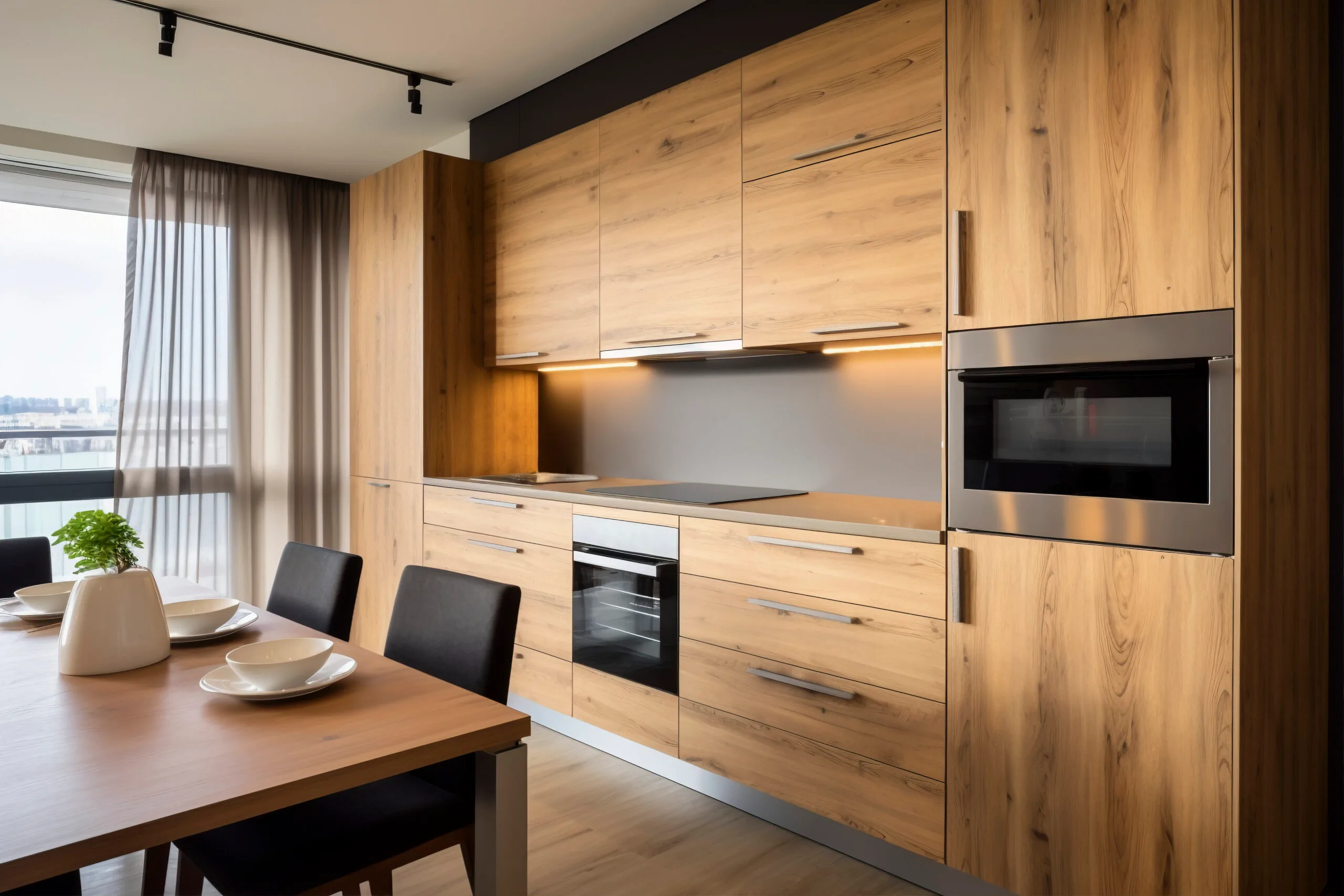
The most beneficial aspect according to many when it comes to using solid plywood cabinets for homes is their sustainability, which makes them an eco-friendly choice for renovating kitchens. Plywood is made with less waste generated during the production of the material when compared to other wood products because smaller and even low-grade logs are often times used. By making use of such renewable resources, plywood cabinetry minimises environmental damage due to deforestation and over-exploitation of logging.
Sustainability of plywood does not stop at its sourcing. Most plywoods are manufactured using eco-friendly production methods with adhesives that have low volatile organic compound emissions and trees sourced from responsibly managed forests. That usually makes plywood cabinets much less toxic — contributing to healthier indoor air quality. Besides the fact that plywood is by nature resistant to warping and moisture, it usually outlives its alternatives such as particleboard or MDF. It is this longevity that reduces the need for constant replacements — reducing waste and conserving resources over time.
@ampquartz Instead of leaving the empty spaces in your kitchen, why don't you put those spaces to use? Custom, custom, custom as you wish! ‘Cause you will get more, more, more storage & benefits! Wanna custom your kitchen cabinet and win electronic appliances? 𝐂𝐨𝐧𝐭𝐚𝐜𝐭 𝐮𝐬 𝐟𝐨𝐫 𝐦𝐨𝐫𝐞 𝐝𝐞𝐭𝐚𝐢𝐥𝐬 𝐨𝐤!📞 +6017 732 0149 (Jasmine) +6010 707 7815 (Lekha) https://go.wa.link/ampquartz 📍𝐕𝐢𝐬𝐢𝐭 𝐨𝐮𝐫 𝐬𝐡𝐨𝐰𝐫𝐨𝐨𝐦! Address: https://waze.com/ul/hw23bfh9s4 82, Jalan Gaya 1, Taman Gaya, Ulu Tiram, 81800 Johor Bahru 💻 𝐕𝐢𝐬𝐢𝐭 𝐨𝐮𝐫 𝐰𝐞𝐛𝐬𝐢𝐭𝐞! https://www.ampquartz.com/ #emptyspace #kitchendesignideas #ampquartz
♬ American Idiot – Green Day
The sustainability profile of plywood is further enhanced by the ease with which it can be recycled or repurposed at the end of its lifecycle. Rather than ending up in landfills, old plywood cabinets can be recycled and reused as new products or become a part in a number of do-it-yourself (DIY) projects.
Overall, solid plywood cabinets support a more sustainable lifestyle and contribute to better use of natural resources by reducing harmful emissions — contributing less waste. That only makes plywood cabinetry a very practical choice for a home owner and responsible one toward the environment.
Solid Plywood Cabinets #4: Lightweight
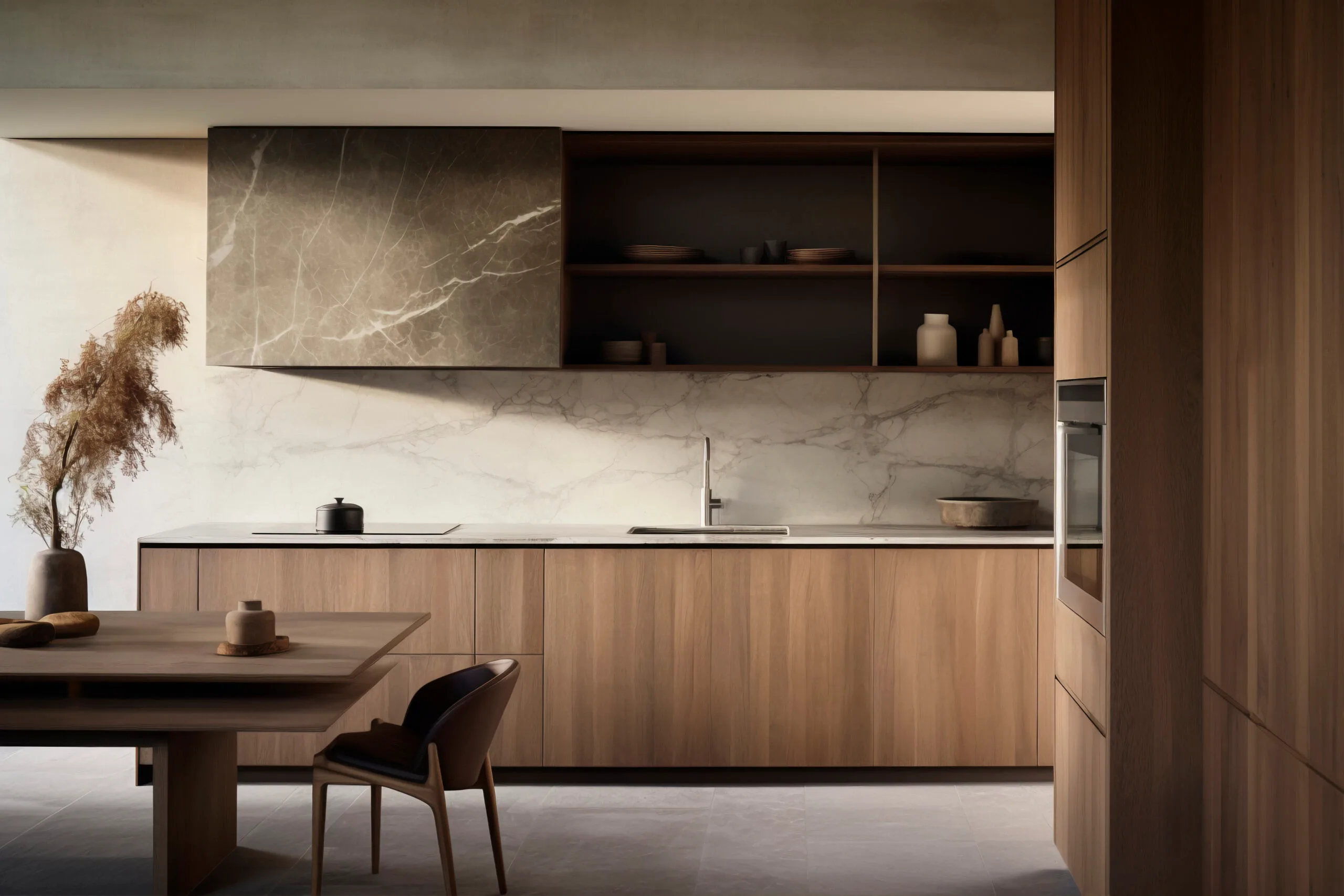
Among the many advantages of solid plywood cabinets for the kitchen is the light weight properties — making them easy to install. Much lighter than solid wood, this material is still highly durable. The lightweight property of plywood makes the cabinets much easier to handle in the installation process — reducing labour costs and other expenses that are connected to the overall time required for a kitchen renovation. Second, this reduced weight will ensure there is less strain on walls and kitchen structures; thus, making sure the cabinets remain securely in place without causing further damage to the surrounding framework.
The production of this material also makes plywood incredibly strong — considering it is lighter with much of the weight and pressure evenly distributed across the surface. This is one of the major reasons why plywood is preferred over heavier materials which could easily warp or sag if subjected to heavy weight. The structural integrity of plywood makes it perfect for supporting everything from countertops and appliances to cookware without bending or breaking over time.
@ampquartz Idea tu ada dimana-mana. Kunci paling utama (selain kunci rumah) adalah pelan & perlaksanaan gituw~ Nak kitorang bantu buat kitchen? Jom contact kami. 𝐁𝐨𝐨𝐤 𝐜𝐮𝐬𝐭𝐨𝐦 𝐜𝐚𝐛𝐢𝐧𝐞𝐭 𝐣𝐨𝐦! 📞 +6017 732 0149 (Jasmine) +6010 707 7815 (Lekha) https://go.wa.link/ampquartz 📍𝐉𝐨𝐦 𝐭𝐞𝐧𝐠𝐨𝐤 𝐬𝐡𝐨𝐰𝐫𝐨𝐨𝐦 𝐤𝐢𝐭𝐚! Alamat: https://waze.com/ul/hw23bfh9s4 82, Jalan Gaya 1, Taman Gaya, Ulu Tiram, 81800 Johor Bahru 💻𝐓𝐞𝐧𝐠𝐨𝐤 𝐣𝐨𝐛 𝐬𝐢𝐭𝐞𝐬 𝐤𝐚𝐦𝐢: https://www.ampquartz.com/ #dapur #dapurestetik #kitchendesign
♬ Big Dawgs – Hanumankind & Kalmi
On top of being light, plywood cabinets are highly versatile. They can be easily customised or adjusted for different kitchen settings without requiring excessive reinforcement. Both home owners and contractors tend to prefer plywood because of the proper balance it achieves between weight and performance — offering a high-quality and efficient cabinet solution. That is what makes solid plywood cabinets quite good for those who seek a reliable and long-lasting option that does not compromise on quality but at the same time is not cumbersome to work with. In conclusion, the lightweight properties of solid plywood make it more advantageous in both installation and daily use.

